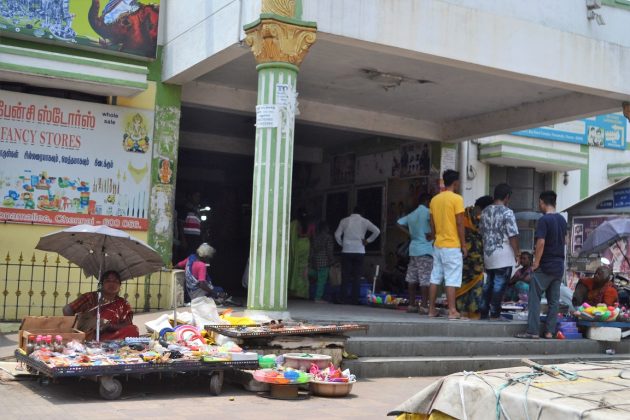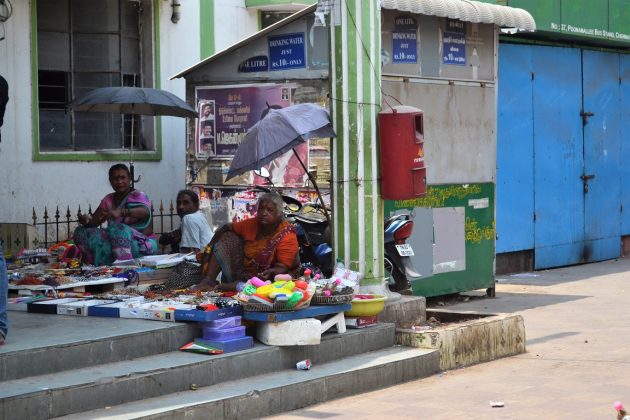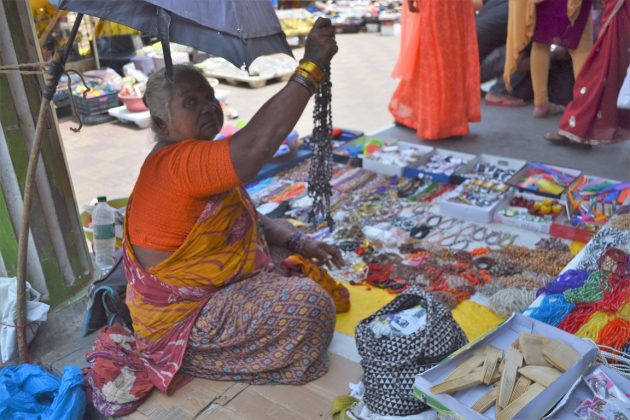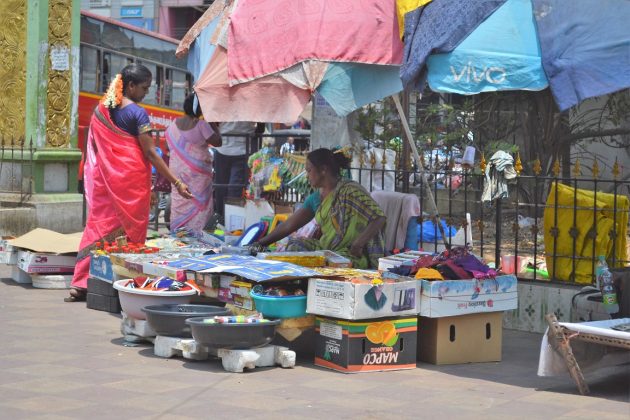
- Home
- News
- Analysis
- States
- Perspective
- Videos
- Education
- Entertainment
- Elections
- World Cup 2023
- Features
- Health
- Business
- Series
- Economy Series
- Earth Day
- Kashmir’s Frozen Turbulence
- India@75
- The legend of Ramjanmabhoomi
- Liberalisation@30
- How to tame a dragon
- Celebrating biodiversity
- Farm Matters
- 50 days of solitude
- Bringing Migrants Home
- Budget 2020
- Jharkhand Votes
- The Federal Investigates
- The Federal Impact
- Vanishing Sand
- Gandhi @ 150
- Andhra Today
- Field report
- Operation Gulmarg
- Pandemic @1 Mn in India
- The Federal Year-End
- The Zero Year
- Premium
- Science
- Brand studio
- Home
- NewsNews
- Analysis
- StatesStates
- PerspectivePerspective
- VideosVideos
- Entertainment
- ElectionsElections
- Sports
- Loading...
Sports - Features
- BusinessBusiness
- Premium
- Loading...
Premium
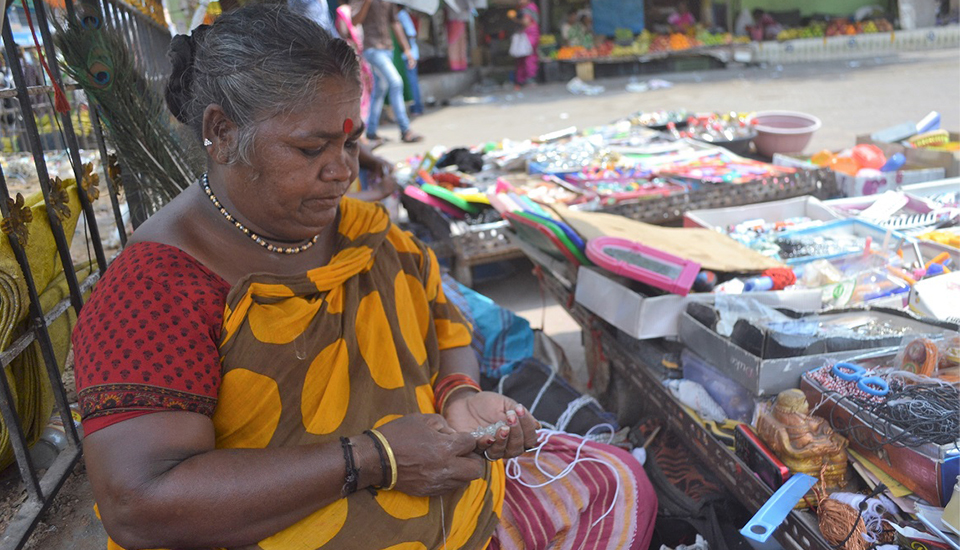
Tribal, not primitive: Where it's easy for women to step up

Kanchana says she has completed all her duties, and that she has gotten both her sons married. But the weight of debt hangs heavy over her head. “In our narikurava community, dowry is not given by girls. It is the boy’s family that should give money. That’s how I ended up with a debt of ₹4 lakh,” she says. At 45, she runs a household of five members, which includes her...
Kanchana says she has completed all her duties, and that she has gotten both her sons married. But the weight of debt hangs heavy over her head. “In our narikurava community, dowry is not given by girls. It is the boy’s family that should give money. That’s how I ended up with a debt of ₹4 lakh,” she says.
At 45, she runs a household of five members, which includes her husband and her three grandchildren. “Their parents are in Hyderabad. They went there two months ago for business,” she says. Business involves selling ornaments like bead chains, wigs, mirrors, combs, knives and locks.
Kanchana lives in the narikurava colony in Poonamalee of Thiruvalluvar district of Tamil Nadu where some 50 families live. Narikuravas are a tribe that trace their roots to Maharashtra. While their cousins in other states are considered Scheduled Tribe in Tamil Nadu many have been classified most backward while a few have obtained ST certificates. Whatever be the classification, their social lives are far different from rest of society. Women lead the households and men often cook and clean. Sometimes they go out and work, too. Many narikurava women can be classified as self-employed — as street vendors.
Narikurava families testify to the findings of the latest National Sample Survey Organization survey that shows that unemployment rates are among the lowest in tribal women. Speaking to The Federal, G Srinivasa Varma, former professor of Linguistics, Annamalai University said that the narikkurava community as a whole, is still a patriarchal society as like other tribal communities. “But that is gradually changing now, since many of the women from the narikkurava community are getting education and are quite aware. Since, most of the Narikkurava men are addicted to alcohol, women take the lead in their households,” he says.
Earning on an equal footing
Kanchana is more concerned about making do, however. “Competition here is very high,” she remarks, adding, “There is nothing great in our lives. All day we stand in the sun, and if we are able to earn ₹500 per day, it is a jackpot”, says Kanchana.
This is how many narikurava women run their day-to-day life. The men used to hunt in the past, but the forest department has banned them from hunting for the past 10 years. Now, they sell beads too, she adds.
The narikuravas start early, finish domestic chores, and around 9am leave to ply their trade. Most youth, including men and women, go in search of iron items usually found in piles of garbage. In the evening, they sell their collectibles to old metal shops which may fetch them ₹150 to ₹200 per day.
Women like Kanchana look after the shops. For their initial investment, they depend on private financiers. They borrow upto ₹50,000 and get material from wholesalers for ₹20,000 or ₹30,000.
“We need to pay according to their terms. Some repay the money on a daily basis and some on a weekly basis and others on a monthly basis. If we fail to pay, they collect fines too,” Kanchana says, adding, “I repay ₹300 daily. I got a loan for ₹30,000. If I am able to earn ₹500 to ₹600 a day, it means I am assured of food for the next two days.”
The amount earned by her husband is more or less similar to what she earns. However, this is not a source of discord between them. “We do not hide our earnings from each other. We spend according to our needs, instead of expecting from the other. Since what we earn is enough only for ourselves, we are finding it difficult to save,” says Kanchana.
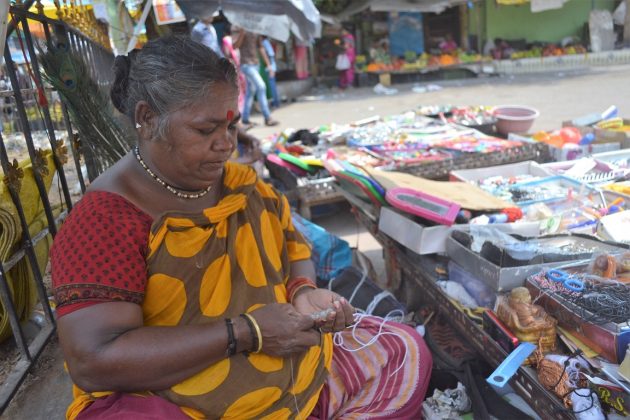
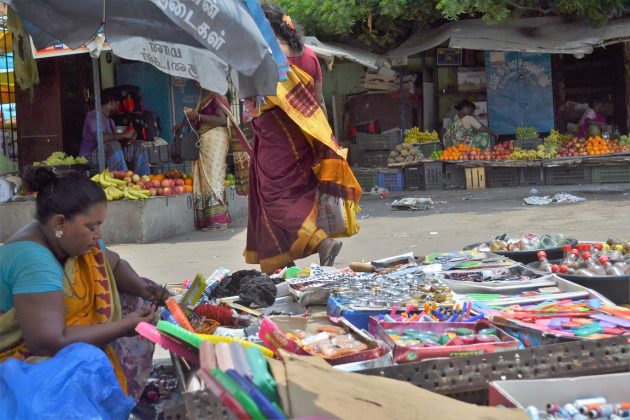
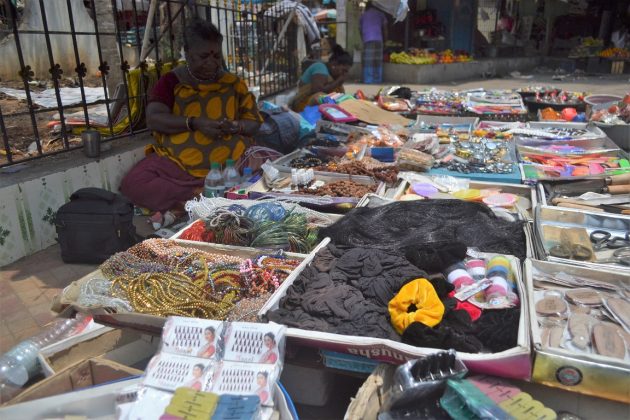
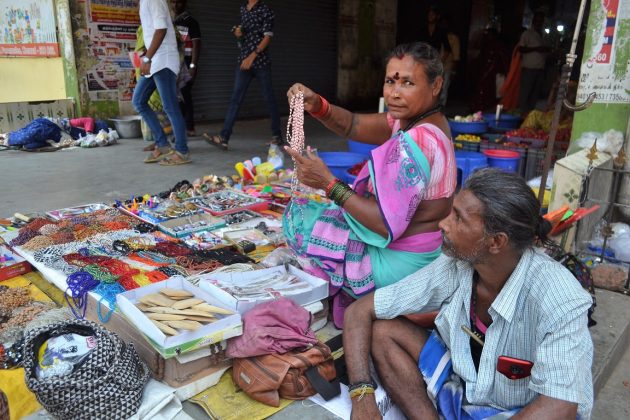
Here taking up a job is not an option
The journey from Poonamallee to Kuthambakkam village takes 15 minutes. Once notorious for bootlegging, the village had a second birth after R Elango, a resident, became the panchayat president. The dalit village is now a model village for many across the state.
Indra, 40, resides in a small house out of which she operates an idli shop. “I have been running this shop for the past 20 years. Earlier, I supplied tea to the nearby industrial units. I used to earn ₹300 to ₹400 per day. But over time, the industrial units closed. Now, I am earning just ₹80 to ₹100 per day. Orders are not coming as they used to,” she says.
Life’s blows kept raining on Indra. She was separated from her husband three years after getting married, and her son was sent to live with her husband. The closure of industrial units then brought a decline to her trade. She was then diagnosed with breast cancer. However, with help from Elango and a handful of her relatives, she pulled through.
Indra has become a sort of a role model for other women in her village as a survivor amidst adversity. But she is an exception in the village that has some 10,000 families. “Women don’t come out and work. The menfolk don’t allow it,” she says. “After Elango became panchayat president, he strove to bring development to the village. Because of him, we had women SHGs. Since I don’t want to depend on my parents or other relatives, I decided to get a loan from the bank and that’s how I started the tea shop,” she says.
Initially she did not show any interest in joining the SHG as she was conscious of her caste and had reservations about mingling with other SC women. “Today, I remember those days and rebuke myself,” she adds.
“Whatever I earn is more than enough to meet my expenses. I do not depend on others, though I have five siblings. They come to me whenever they need any financial help,” she adds, her face beaming with pride.

